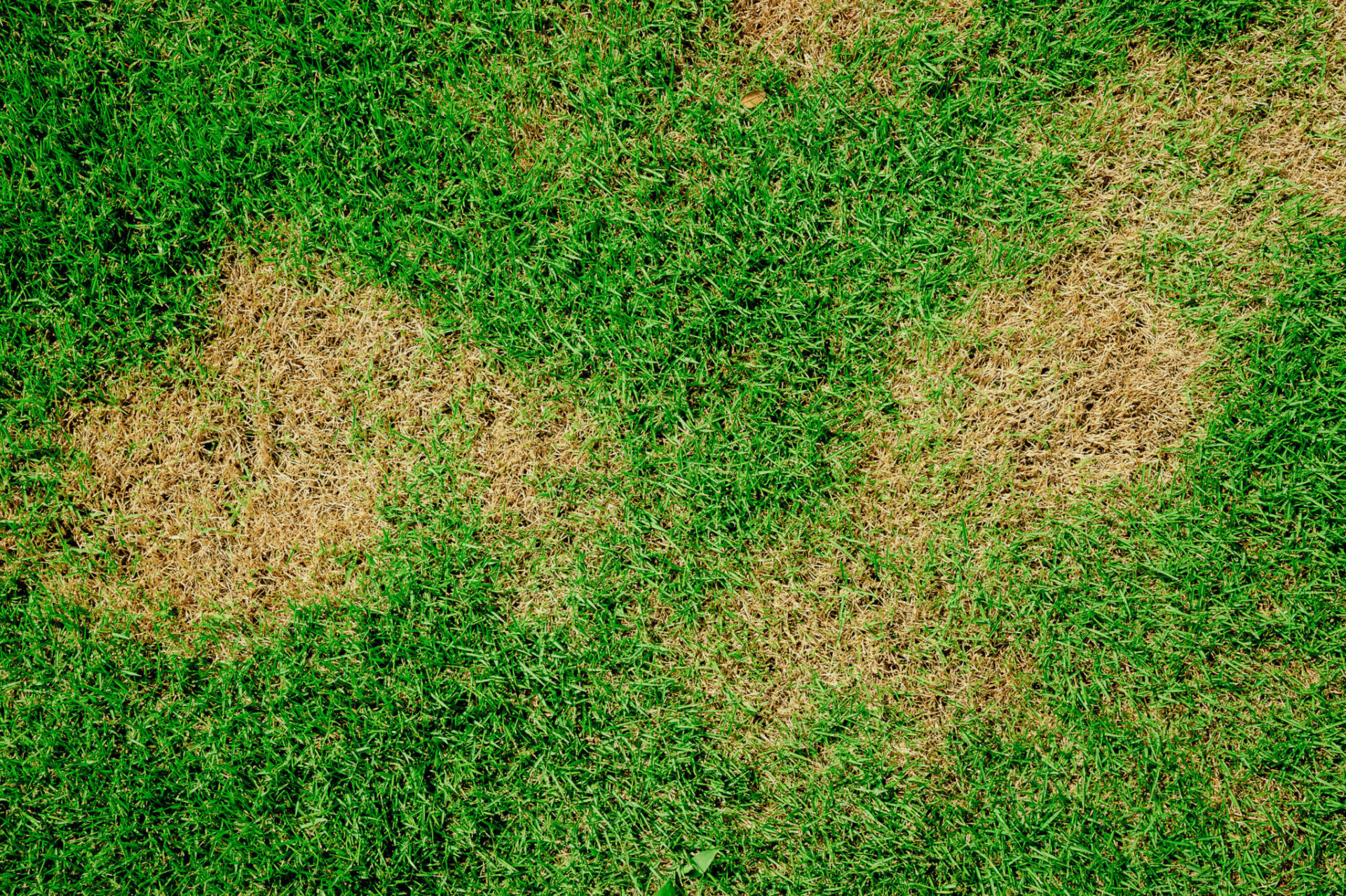
Your lawn might look healthy one week and start showing brown, patchy spots the next. Often, the culprit isn’t insects or poor watering—it’s lawn disease or fungus.
Texas lawns are especially vulnerable to turf diseases due to heat, humidity, and inconsistent rainfall. But the good news is, with the right fungus control treatments and prevention strategies, you can protect your lawn all year long.
1. Common Lawn Diseases in Texas
Understanding what’s attacking your lawn is the first step to stopping it. Some of the most common lawn diseases include:
- Brown Patch: Large circular areas of dead or discolored grass, especially common in humid weather.
- Dollar Spot: Small, silver-dollar-sized spots that expand over time.
- Gray Leaf Spot: Yellow or gray lesions that weaken blades.
- Powdery Mildew: White, powder-like growth on shaded or overwatered lawns.
- Rust: Orange or rust-colored dust that coats grass blades.
Each disease has unique causes and treatment requirements, which is why professional diagnosis is essential.
2. What Causes Lawn Fungus?
Fungal diseases thrive under specific conditions—usually a combination of:
- Excess moisture or overwatering
- Poor soil drainage
- Compacted soil and limited airflow
- Too much shade
- Excess nitrogen fertilizer
- Warm, humid weather
When these factors align, spores multiply rapidly and spread across your lawn.
3. Signs Your Lawn Has a Fungus Problem
If you’re noticing unusual discoloration or thinning grass, look closer. Common signs of fungal disease include:
- Circular or irregular brown patches
- Gray or white fuzzy growth
- Slimy or greasy spots on blades
- Yellowing grass that doesn’t recover with watering
These early indicators mean your lawn needs treatment fast to prevent widespread damage.
4. Why DIY Fungus Control Doesn’t Always Work
Many homeowners try to treat lawn diseases with off-the-shelf fungicides, but without identifying the correct disease, these treatments often fail—or make things worse.
Using the wrong product or applying it at the wrong time can:
- Damage healthy grass
- Increase chemical resistance in fungi
- Waste time and money
Professional lawn technicians diagnose the disease accurately and apply targeted fungicides using precise timing and rates for lasting control.
5. The Anointed Lawn Care Approach to Fungus Control
At Anointed Lawn Care, lawn disease control involves:
- Inspection: Identifying specific fungal issues through expert assessment.
- Treatment: Applying high-quality, targeted fungicides for effective elimination.
- Prevention: Adjusting watering, mowing, and fertilization practices to reduce recurrence.
Their careful process ensures your lawn not only recovers but grows stronger afterward.
6. How to Prevent Lawn Disease
While treatment is important, prevention is even better. Keep your lawn fungus-free by:
- Watering early in the morning to allow blades to dry
- Avoiding overwatering and standing moisture
- Mowing regularly with sharp blades
- Aerating compacted soil annually
- Reducing nitrogen-heavy fertilization during humid months
- Scheduling professional inspections each season
These small habits can significantly reduce your risk of fungal outbreaks.
7. The Role of Healthy Soil
Healthy soil builds disease resistance naturally. Treatments like core aeration and soil amendments improve airflow and drainage—two key factors in preventing fungus from taking hold.
Combining these with professional monitoring helps your turf stay vibrant and strong, even during high-risk weather conditions.
8. When to Call a Professional
If your lawn shows recurring brown or yellow patches that don’t respond to watering or fertilization, it’s time to call in the experts.
Professional lawn care services can identify the disease, treat it effectively, and develop a long-term prevention plan tailored to your soil and grass type.

Lawn diseases can spread fast, but with expert care, your grass can bounce back stronger than ever. Professional fungus control and prevention are the keys to maintaining a lush, green, healthy lawn year-round.
Don’t let lawn disease take over—contact Anointed Lawn Care today for expert diagnosis and treatment, and get your free quote!









